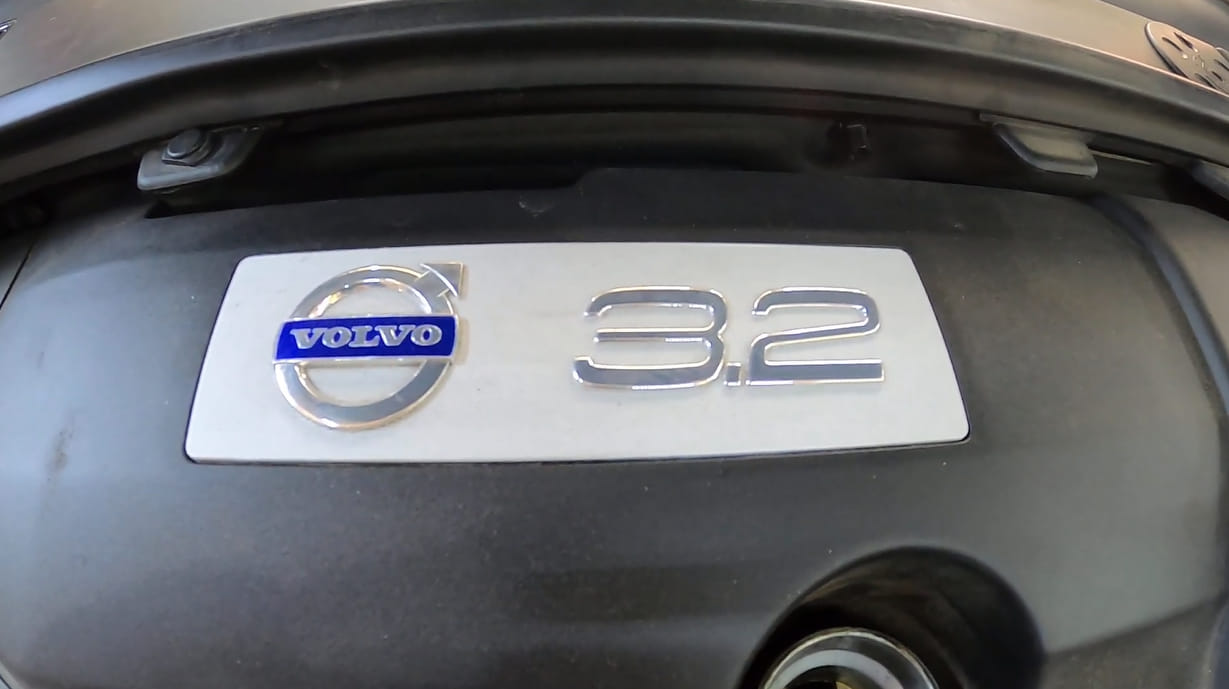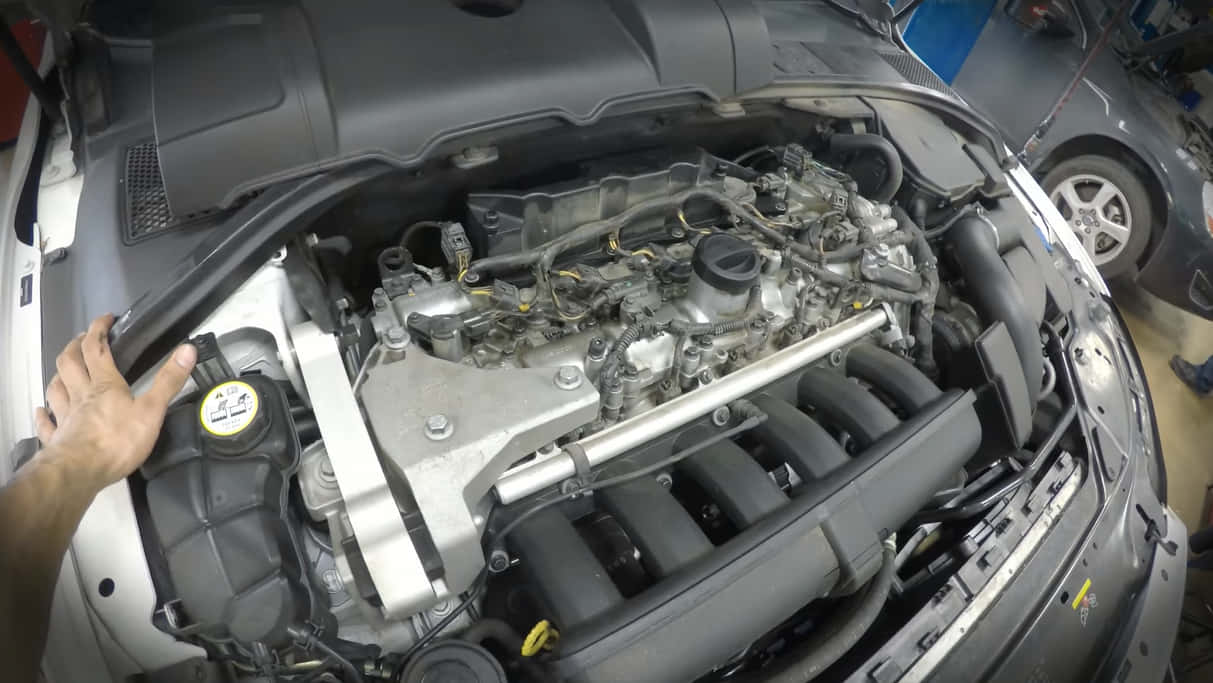It is not surprising to some people to hear about some Volvo 3.2 engine problems.
Although it is a reliable engine, there are some issues that owners complain about, which may be worth knowing.
If you are unaware of these problems, and you would like to be correctly informed about potential issues with this engine, keep reading to gain a better understanding about it. Here is everything you should know about the Volvo 3.2 engine and some concerns that may come along the way.
Let’s dive right into it.

Volvo 3.2 Engine Problems
Basically, the 3.2-liter engine is quite adequate. While it is most definitely no sports car, you can expect it to be reliable and efficient.
The drivetrain connected to this engine is the same one used with V8, which means that the limits are within the drivetrain capabilities.
However, the filter cartridge used is different. But before we go straight to the problems, let’s talk about the good things about this engine.
For the most part, there are some benefits arise from this engine include a more robust timing chain, simplified tasks compared with the older engine series, and the vacuum pump is camshaft-driven, which also runs your brake booster (not an electric pump).
The oil filter is easier to access, as well as the engine accessories because these are run off of the READ or the Rear Engine Accessory Drive.
On the other hand…
The service for the 150,000 mileage is a bit intensive. It includes changing not only the serpentine belt but everything else related to it. There are special tools needed to remove your decoupler pulley, and you can use generic tools, thankfully.
While you are getting the engine service, you may need to include the thermostat housing. This is a bit costly, just so you’d know, so if not done yourself, expect to pay a bit more.
When manipulating the crankshaft and cams, you need to use special tools. To buy these tools, it can cost upwards of $250, which is a bit too steep.
Next, the intake manifold is made of plastic. There are a few seals for the actuators and manifold-head junction, and these modulate your runner lengths.
Volvo also placed two cat converters (out of the four ones) in the exhaust manifold. Unfortunately, this makes it a bit too expensive to maintain and service when the time comes.
When you need to realign the AC bracket on the earlier models of the engine, you need special tools to do this. But there are no complex tools required with the S5 version.
Overall, oil consumption is hit or miss with the Volvo 3.2 engines. There are some who complain about experiencing problems with their older models while others seem to do quite fine. And with the expensive maintenance cost, it can be a bit of a drawback.
Are Volvo Engines Reliable?

For the most part, the Volvo is reliable, although expensive to maintain.
Safety is one of the strongest suits of the Volvo, as well as reliability. On the other hand, the average cost of engine repairs is quite steep. This is why if the vehicle takes a bit longer to fix and the labor cost is high, then it is one thing to keep in mind about these vehicles.
It is worth noting the Volvos have a lot of technology in their engines. This means that there are software updates that need to be done, and with so many elements in place, things can go wrong sometimes. In fact, there are updates to be carried out, which is also a bit expensive both to maintain and to replace or repair.
Although having the latest tech is a good thing, that does not mean it is always reliable. If you are unable to do the update, then some functionalities may not perform well. Just like with a new device or gadget with software updates to be performed, failing to do so may mean bad news to its performance. The same goes with your Volvo. Once things fail, whether it is engine-related or an in-car technology, it is a big pain for you because of the reduced dependability and performance, as well as the steep repair costs.
So is the Volvo engine reliable? Or is it nothing but a waste of money and time on your part? Are you better off considering other brands of vehicles or is the Volvo 3.2 engine an investment that is worth it in the long run?
Generally, a Volvo is a brand to consider when you search for safety features – reliable and dependable – for your peace of mind while driving. This is why it remains to be a popular brand of vehicle despite some concerns with the technology and expenses that come with maintenance.
Read More: Common Volvo D16 Engine Problems You Never Knew
Conclusion
In terms of strength, robust features, and dependability, the Volvo 3.2 engine is note-worthy of all these qualities. On the other hand, there are a few points to consider such as the intricacy in the maintenance procedure, as well as the expenses that come with it.
But if what you look for is power in such a compact engine, then the 3.2 engine will not let you down. It just makes sense to keep it well-maintained and to make sure all updates on the software are carried out in a timely manner and in a correct way.
With all these being said, there are some issues with the Volvo 3.2 engine, yet there are also a few good things to be said about it that are worth looking into.
Just make it a point to take your Volvo to a specialist or authorized Volvo mechanic for any maintenance work that needs to be done, so you can avoid any issue while making sure potential concerns are remedied sooner rather than later.
I have a 2008 XC70 with 120K miles. The check engine went on a month or so ago and I took it to a local mechanic. First he said it was a cam sensor so we replaced it. Then it was the other sensor as the engine has 2 cams and therefore 2 sensors. That didn’t fix it. Then a valve adjuster solenoid and that did not fix it. Then the second valve adjuster solenoid which meant getting under an engine mount to get to the 10 mm bold holding it. That didn’t work. Then draining the syn-blend oil and refilling with only syn. That didn’t work. I changed the oil every 3500 miles with good brand oil and filter. Now, after $1000 in repair charges, I am told that it might be the cams themselves or the timing chain sprocket. The last OBD II reading was P0012. This is getting ridiculous and I wonder if the car is worth the expense. I love driving it as it is comfortable and performs well….but getting it repaired has gotten me upset….Any ideas out there??
Hi Barry,
It sounds like you’ve already tried a lot of different things to fix the issue. Since the P0012 code specifically relates to the camshaft timing, it’s possible that there is a problem with the camshaft itself or the timing chain sprocket as you mentioned. It may be worth getting a second opinion from a different mechanic or a Volvo specialist to see if they have any other ideas. Additionally, you could consider investing in an OBD II scanner so you can read and reset codes yourself to save money on diagnostic fees in the future. Ultimately, whether the car is worth the expense of repairs is a personal decision based on your budget and how much you value the car. If you love driving it and it’s been reliable aside from this issue, it may be worth continuing to invest in repairs.
Good luck, bro
VERY helpful information. I have a 2011 XC70, 3.2 engine, with 217,000 miles on the vehicle. Maintenance certainly has been expensive, but the seat comfort for my deteriorated spine, as well as the smooth ride, is worth the cost of ownership.
This biggest unexpected expense was with the A/C system repair. A single tube (12-15” long) with Schrader valve(s) screwed into it (sorry for my technical ignorance) was about $1800! Thankfully, I found a Volvo specialist repair shop after I grew weary & angry with the mis-diagnoses & price gouging episodes at the dealer’s service department. The reliable, trustworthy and seasoned techs moved on within a 1 year period & the service department then hired inexperienced techs with a consistently disappointing work ethic.
Since I understand that China now owns Volvo, and electric vehicles are Volvo’s future, this is likely my last Volvo.
Glad it helped you